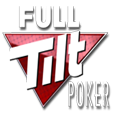Limit Omaha high low split poker is one of the most straightforward mathematical variations of poker available. This makes it not only possibly the most consistently profitable variation, but also the variation requiring the least bankroll for winning players. Here are some strategies that will help you while playing any version of limit Omaha.
Starting hand decisions are by far the most important aspect of limit Omaha 8 play. Over the long course of a poker career, the player who enters the pot with the best hand will win a higher percentage of pots than other players. Omaha hi lo poker magnifies this as it seems there are a greater number of players who just don’t understand the game. Poor players think that because they start with four cards instead of two, they can play more hands. Winning players understand that the opposite is true. Everyone starts with four cards, which means that the winning hand will have to be stronger than those that tend to win at the holdem tables.
Starting hands need to fall into one of two categories. They must be either strong high only hands or ones that offer strong scoop potential. Low only hands, like those with a bare A 2, are very weak and tend to lose money in the long run. To clarify, a bare A 2 hand is one with A 2 and nothing else that is likely to make a good hand. Hands like A 2 8 Q and A 2 9 J are examples of hands that should be folded pre flop. However, the A 2 8 Q hand could be played in certain situations if the Ace was suited to one of the other cards, but it would probably never be wrong to fold it.
Play after the flop is straight mathematics and pot odds. You must take the following into account on any hand you are in after the flop.
How much money is in the pot?
How much money is likely to be in the pot at the end of the hand?
Do I have the best hand now?
If I do, how likely will it be the best hand at the end?
If I don’t have the best hand now, what are the odds it will improve to the best hand?
Once you answer these questions, you will know if you should bet and raise, check and call, or fold. As you gain experience, this becomes easier, often acting like second nature. Things that help you improve the answers to these questions come from understanding how your opponents think and play, so it s always important to pay close attention to all of them, even when you are not involved in a hand.
The same questions must be answered on the turn and river of every hand. Of course on the river you don’t have any more cards to come, so it is simply how likely your hand is good.



